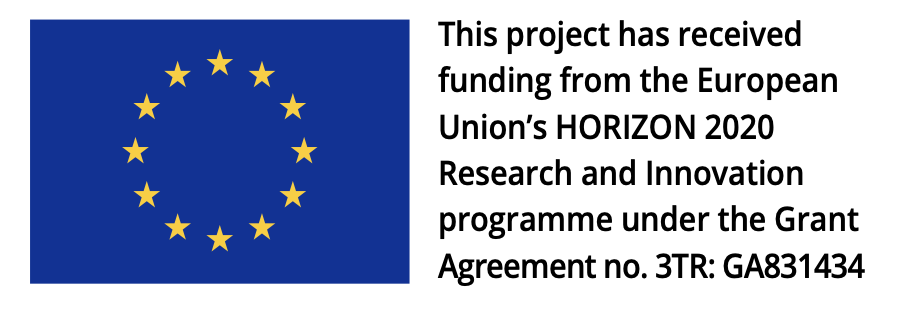By utilising advanced technologies, the 3TR project aims to transform the understanding and treatment of immune-mediated diseases, with its core principles in precision medicine. Principal investigator, Marta E. Alarcon-Riquelme, explains
At a time when chronic diseases place growing pressure on patients and health systems alike, one European research consortium is rewriting how science is done. The 3TR project – short for Taxonomy, Treatment, Targets, and Remission – is a groundbreaking effort to understand the shared mechanisms driving immune-mediated diseases and to pave the way for truly personalised medicine across Europe.
Backed by €80 million in funding through the Innovative Medicines Initiative (IMI2), 3TR unites 69 organisations across 15 countries, including eight major pharmaceutical companies and leading academic institutions, in one of the largest collaborative efforts ever launched in the field of immunology.
A new model for precision medicine
At its core, 3TR follows Europe’s vision of breaking down scientific silos and advancing research that serves the public good. The project is built on the principles of precision medicine: understanding the specific molecular and cellular pathways active in each individual patient, and using that knowledge to match them with the right therapy from the start.
The 3TR motto of right drug, right patient, right time does not just improve outcomes but also reduces the emotional and economic burden on patients and health systems. As 3TR Scientific Coordinator Dr Marta E. Alarcón-Riquelme, Scientific Director of the GENYO centre and researcher at the Fundación Pública Andaluza Progreso y Salud, explains, “By translating science into better therapies, we are making European research more connected, more responsive, and more impactful for people’s lives.”
Studying diseases together. Not apart
3TR takes on seven immune-mediated diseases: rheumatoid arthritis, multiple sclerosis, systemic lupus erythematosus, Crohn’s disease, ulcerative colitis, asthma, and chronic obstructive pulmonary disease (COPD). These conditions may seem distinct, but 3TR’s strength lies in treating them as part of a larger puzzle.
By analysing data from over 50,000 individuals and samples, along with a wealth of clinical trials, researchers are identifying mechanisms shared across diseases – the immune pathways that underpin inflammation, tissue damage, and treatment resistance. This cross-disease approach is revealing that answers found in one disease can illuminate many others, opening entirely new frontiers in diagnosis and therapy.
Tackling non-response and early detection
Despite remarkable progress in the development of targeted therapies, 30–40% of patients still fail to respond to existing treatments. 3TR seeks to understand why this happens and how to predict it.
By integrating clinical data with biological insights, the consortium aims to pinpoint the mechanisms that determine response or non-response to therapies. This could help clinicians intervene earlier, prevent disease progression, and reduce the long-term costs associated with chronic illness.
A win for patients and for Europe’s social healthcare systems alike.
Deep science meets data innovation
To achieve this, 3TR deploys some of the most advanced technologies available in biomedical research. The project combines longitudinal cohort sampling, deep multi-omics profiling, and Machine Learning to decode disease trajectories: the path from initial treatment to outcome.
Data from the genome, transcriptome, proteome, and microbiome are analysed alongside single-cell data to map the intricate networks driving inflammation and immunity. This comprehensive, integrated approach is what makes 3TR unique. Few projects are positioned to study disease processes in such depth, across so many disciplines.
A collaborative force: Academia and industry united
Collaboration is the lifeblood of 3TR. The consortium’s academic institutions, SMEs, and industry leaders, including Sanofi, Janssen, GSK, Novartis, Takeda, AstraZeneca, Roche, Bristol Myers Squibb, and Pfizer, are working together in unprecedented ways.
Through the creation of the Super
Data Interpretation Group (Super-DIG), experts across sectors are joining forces to interpret findings from all seven diseases. Centralised protocols for recruitment, sampling, and analysis ensure that results are comparable, reproducible, and ready to be transformed into clinical action.
Building the future of European research
Europe’s vision for science is one of collaboration without borders, and 3TR embodies that mission. By harmonising research across diseases, institutions, and nations, the project is setting a new benchmark for how biomedical innovation can be structured and how it can directly serve patients.
Perhaps most importantly, 3TR’s approach ensures that patients are not only beneficiaries but active participants in research. Their lived experiences, insights, and expectations help shape study design and outcomes, ensuring that science translates into tangible improvements in care and quality of life.
As 3TR advances, its legacy will extend far beyond the diseases it studies. It will redefine how Europe thinks about complex disease management, how data can drive discovery, and how shared challenges can lead to shared solutions. 3TR is more than a project. It is a blueprint for the future of collaborative science in Europe.
Follow 3TR on LinkedIn and X and visit the website www.3tr-imi.eu to learn more about how this groundbreaking initiative is transforming research, treatments, and lives across Europe.



